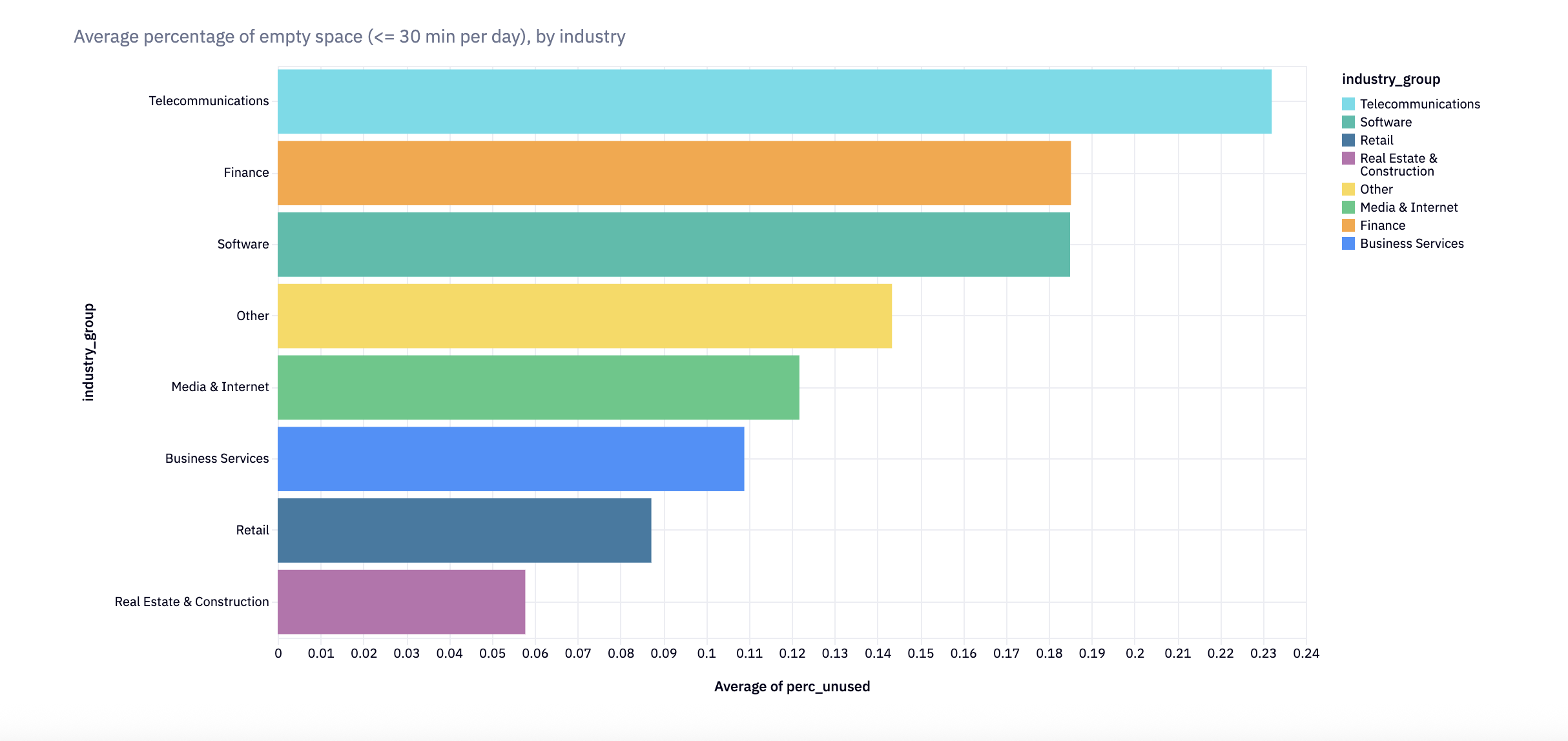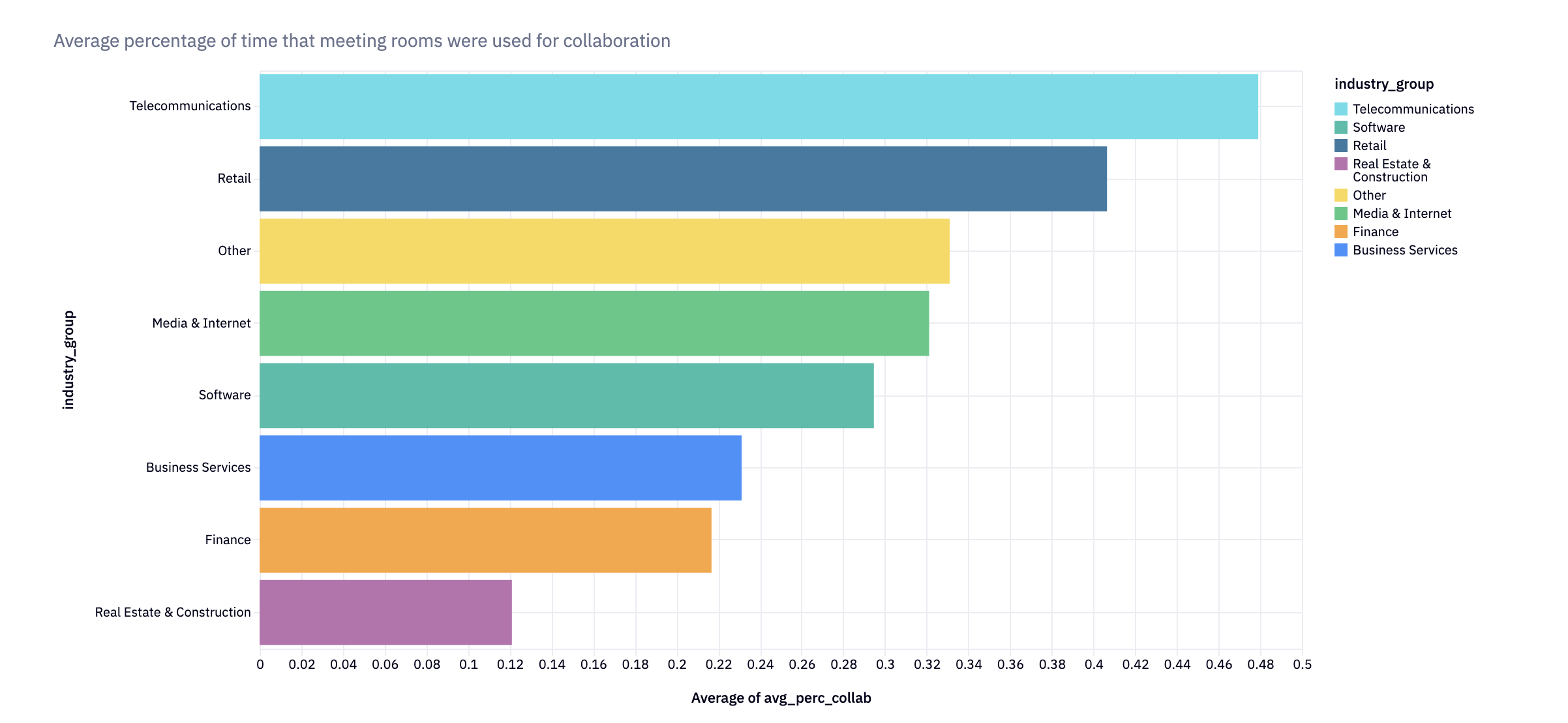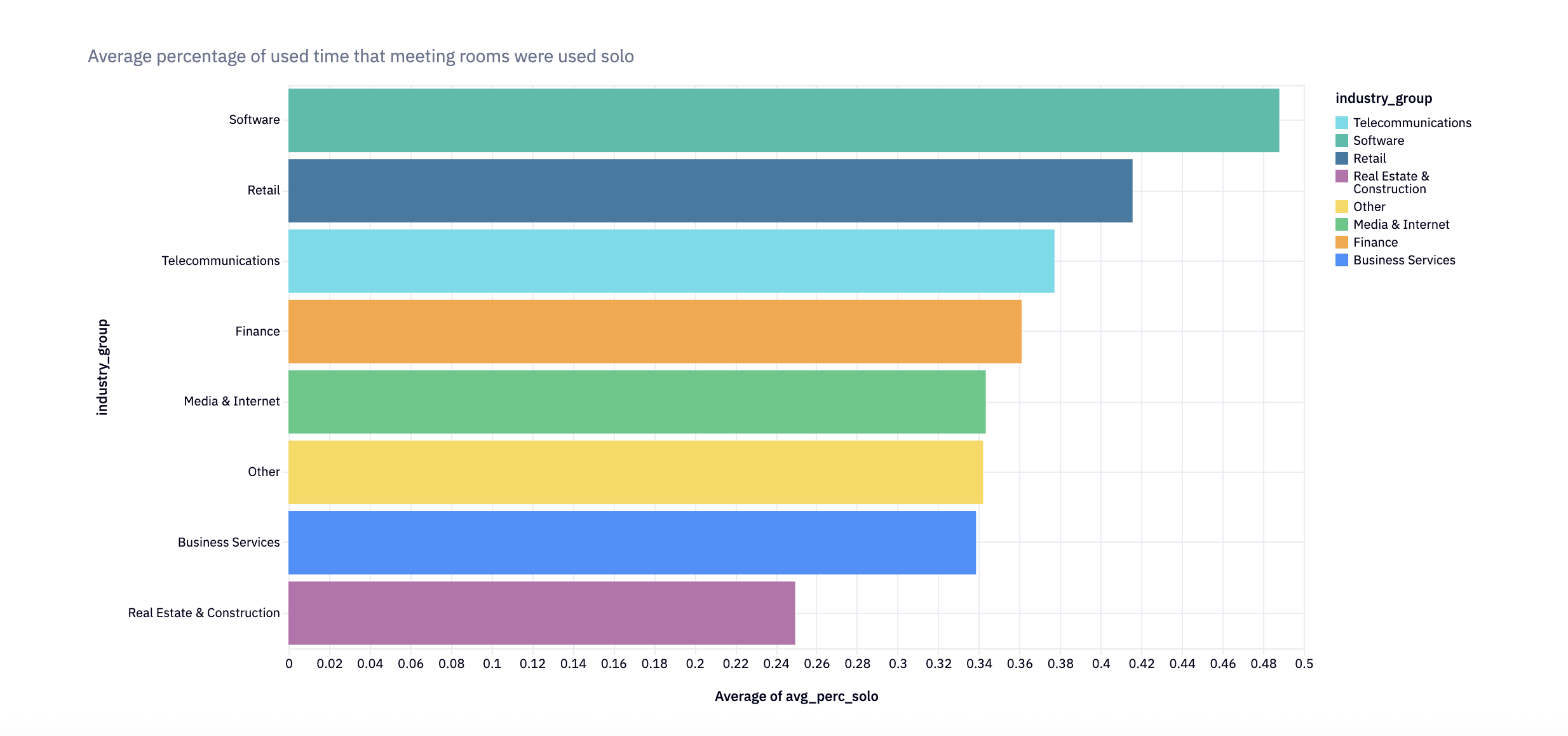Space waste: The industry’s naughty and nice list
Our sensors spilled the beans: What industry is winning, who's wasting and who's hogging your office real estate.

Real estate: it's expensive, necessary and notoriously tricky to get right. Companies want a Goldilocks approach—not too little space that employees revolt, not too much that you're paying for ghost-town desk neighborhoods.
And after the global return-to-office shuffle (yes, it’s happening, check out our Zooms to rooms report), we're digging into how space is really being used across industries. So, are offices making a comeback, or are businesses stuck with expensive storage units disguised as workspaces?
We dove into nearly 37,000 spaces across 8-plus industries, crunching occupancy data from early 2023 through June 2025. We track collaboration in meeting rooms as any time spent with more than 1 person in a meeting. And if this were a mid-year report card, we’d gently nudge some industries with a polite “see me after class.”
Emergency call: Telecom utilization flags

Let’s start with the underutilization champs, or rather, chumps. Telecom, listen up: Nearly a quarter (23%) of your office spaces see less than 30 minutes of action per day. Time to call in the real estate team.
Not far behind in space-wasting prowess, Software and Finance are neck-and-neck, each with about 18.5% of their space sitting idle more often than not. Clearly, being genius at code or capital doesn’t always translate into handling office efficiency.
But guess who’s nailing it? Real Estate & Construction. Only around 6% of their spaces are underused. Talk about practicing what you preach.
Retail wasn’t far off, impressively using most of their spaces, with just 9% left largely untouched. Business Services followed close behind, clocking in at 11%. Not bad at all.
Telco turns it around on collaboration

Now, before Telecom heads to detention, we’ve got some redeeming news. Turns out, Telecom offices are buzzing with collaboration—48% of meeting room usage goes to actual, you know, meetings. Retail also earns some brownie points here, with 41% of meeting room time devoted to teamwork.
On the flip side, Real Estate & Construction, despite efficiently using general office space, could definitely benefit from some team bonding. Only 12% of their meeting room time goes toward collaborative efforts. Finance isn’t far behind in the collaboration fail, using rooms collaboratively just 22% of the time. Come on, folks, talk to each other!
Now, let's talk about solo room hoggers. Solo meetings aren’t inherently bad. We all have our video calls to take. But monopolizing a space designed for groups isn't great office etiquette.
Software loves their solo meetings

And the biggest culprit? Software companies, taking the dubious gold with solo users hoarding meeting rooms nearly 49% of the time. Retail also scores poorly, with lone wolves occupying rooms about 42% of the time.
But credit where it's due: Real Estate & Construction companies are mindful solo users, with just 25% of meeting room time used by one person. Business Services holds its own, too, coming in at 34%.
All this juicy intel comes straight from our occupancy sensors. Want more insights on turning space into efficiency gold? Check out our article "More space, less waste: 6 ways occupancy sensors change the game."
Interested in learning more about Density's solutions?
Key Takeaways

DisruptCRE founder shares how corporate real estate is changing
Companies are moving employees from underutilized offices into "space as a service” options with utilization data.
Watch now
Half of offices are empty but you still can’t find a meeting room
Employees waste up to 30 minutes a day looking for a meeting room to meet in workplaces.
Read moreMost recent
.png)
Improve your occupancy sensor RFP with our best practice guide
Discover essential questions to simplify your occupancy sensor RFP process and confidently choose the right vendor.

Does RTO actually work? A webinar debate with the data
Density’s RTO data sparks debate between a pro-office CEO and a remote-friendly workplace strategist.

A workplace love story: Phone booth meets sensor
Phone booths are booming—and occupancy sensors help companies manage and measure them with ease.

Modern work: Less meetings, more trust and the office reboot
Density CEO Andrew Farah and real estate expert Gordon Lamphere unpack the big ideas shaping work today.
Explore other Density Products
Atlas for Workplace
Insights for the workplace that help you cut costs and deliver better spaces.
Learn more